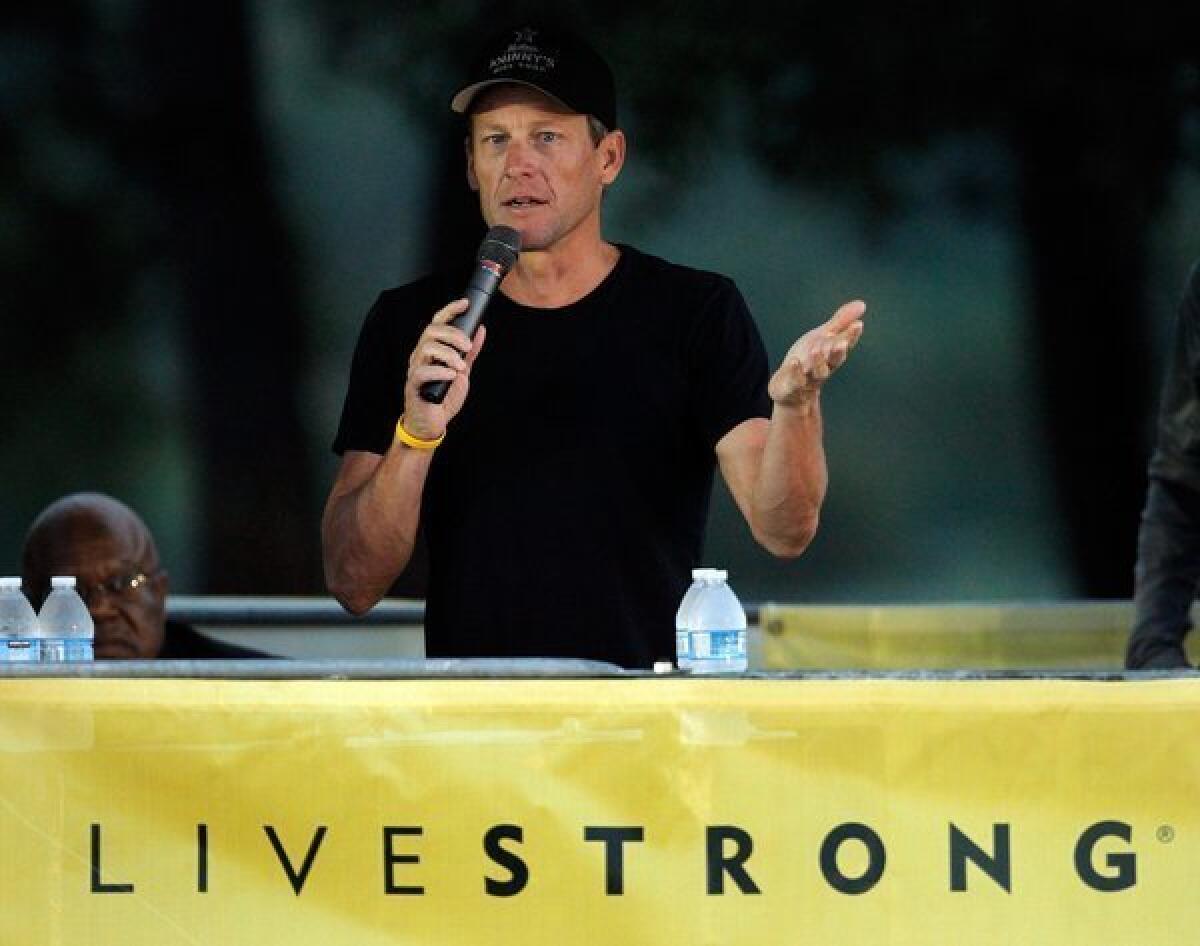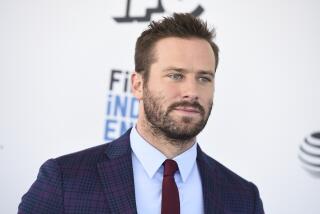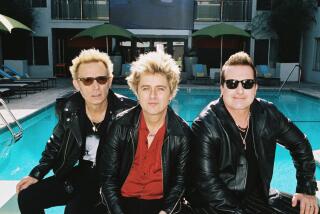Lance Armstrong on sponsors leaving: A $75-million day in losses

- Share via
A night after Lance Armstrong admitted to doping throughout the course of his athletic career, the disgraced cyclist spent the second half of his much-hyped television interview with Oprah Winfrey talking about fallout from the scandal.
Armstrong, who had appeared calm and composed the night before, teared up when he described telling his children about his past misdeeds.
“I said, ‘Don’t defend me anymore,’” he recalled. “‘Don’t.’”
PHOTOS: Lance Armstrong through the years
At the same time, he expressed a desire to return to sanctioned competition, such as marathons, and seemed to disagree with the lifetime ban the U.S. Anti-Doping Agency handed down last fall.
“I deserve to be punished,” he said. “I’m not sure I deserve the death penalty.”
The televised confession follows a period of several months in which sports officials have cracked down on the superstar athlete. The USADA report resulted in not only a ban, but also the loss of his seven Tour de France titles.
PHOTOS: Sports scandals, present and past
This week, the International Olympic Committee asked him to return a bronze medal he earned at the 2000 Summer Games.
In addition, the Livestrong Foundation had previously asked him to leave its board. He had founded the cancer-fighting organization after surviving testicular cancer.
Livestrong became a promotional success, selling hundreds of millions of its iconic yellow wristbands.
“That foundation is like my sixth child,” he said. “To make the decision to step aside, that was big.”
The tide of public opinion had been turning against Armstrong for several years by that point. People have a kind of unspoken agreement with their heroes, said Scott Allison, a psychology professor at the University of Richmond.
“When heroes misbehave, I think we see it as a breach of contract,” said Allison, who co-wrote “Heroes: What They Do and Why We Need Them.”
“I think we need to see them suffering,” Allison said. “We need to see them squirm and humiliate themselves as a price they pay for breaking the contract.”
The price for Armstrong has extended beyond his dignity. After the USADA report, he recalled getting one phone call after another from the sponsors who had made him one of the sporting world’s richest endorsers.
All of them parted ways with him.
“I don’t like thinking about it,” he said. “But that was, I don’t know, a $75-million day.”
Armstrong denied trying to bribe USADA to stop its investigation. He insisted that he raced clean during a comeback that included a third-place finish at the 2009 Tour de France.
“I expected to win,” he said. “At the end, I said to myself, I just got beat.”
Now, Armstrong said he is undergoing psychological therapy and trying to find a way to get on with his life.
“I feel ashamed,” he said. “Yeah, this is ugly stuff.”
More to Read
Go beyond the scoreboard
Get the latest on L.A.'s teams in the daily Sports Report newsletter.
You may occasionally receive promotional content from the Los Angeles Times.











